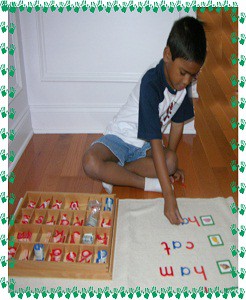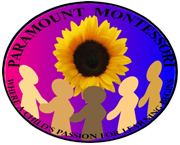Art, Culture, Science & Music
Maria Montessori always believed in educating the whole child. So she incorporated hands on activities in art, music, zoology, botany geography and history. At Paramount Montessori, children are exposed to different cultures and festivities through songs.They learn the rhythm with drums, rhythm sticks, bells. triangles and other musical instruments. Besides learning culture, music has other aspects too.Seasonal activities and festivals are reflected through art projects in our school. Children love to draw,paint make crafts relating to special occasions and celebrations all year round.
In geography children at Paramount are exposed to hands on puzzle maps of the world and the seven continents.They also learn about landforms, habitats and community.
Science is taught through through hands on experiments like sink and float, air water and gas are conducted as group lessons.
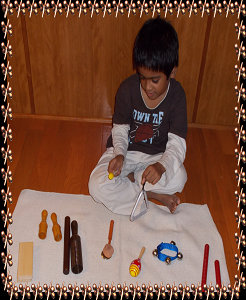
Sensorial
Sensorial materials fulfills the instinctive desire to see, touch, taste, hear, and feel around them. Each piece of sensorial material isolates one quality like color, weight, taste, touch, smell and dimension. It helps children to classify the environment by logical reasoned thoughts, and thus build the foundation for physical and mental activities in learning. It refines their five senses and helps them move along from concrete to abstract thinking in language development, writing and math.
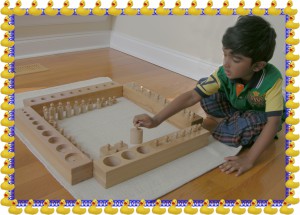
Practical Life
Practical life is the most important stepping stone that builds the foundation in all areas of the Montessori classroom. By participating in activities like pouring, preparing food, tonging, spooning and tweezing children refine their muscular coordination, develop concentration by beginning a work and working to the end, learn order and also learn to take care of self and environment . All activities usually follow a left to right and top to bottom orientation which indirectly prepares the child for reading and writing.
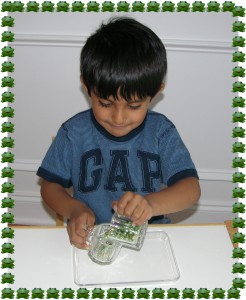
Math
The foundation of early math skills actually starts with practical life lessons where children develop a concept of order, sequence and exactness, sensorial explorations of dimensions and categorization. At the beginning children learn math using math manipulative in a concrete approach. But with repetition and successive mathematical activity children gradually move to more abstract thinking. The Montessori curriculum for this age group branches from simple 1-10 work to basic operations of addition , multiplication, subtraction , division and the decimal layout.
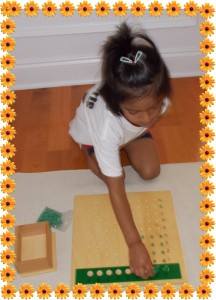
Language
Sensorial materials fulfills the instinctive desire to see, touch, taste, hear, and feel around them. Each piece of sensorial material isolates one quality like color, weight, taste, touch, smell and dimension. It helps children to classify the environment by logical reasoned thoughts, and thus build the foundation for physical and mental activities in learning. It refines their five senses and helps them move along from concrete to abstract thinking in language development, writing and math.
